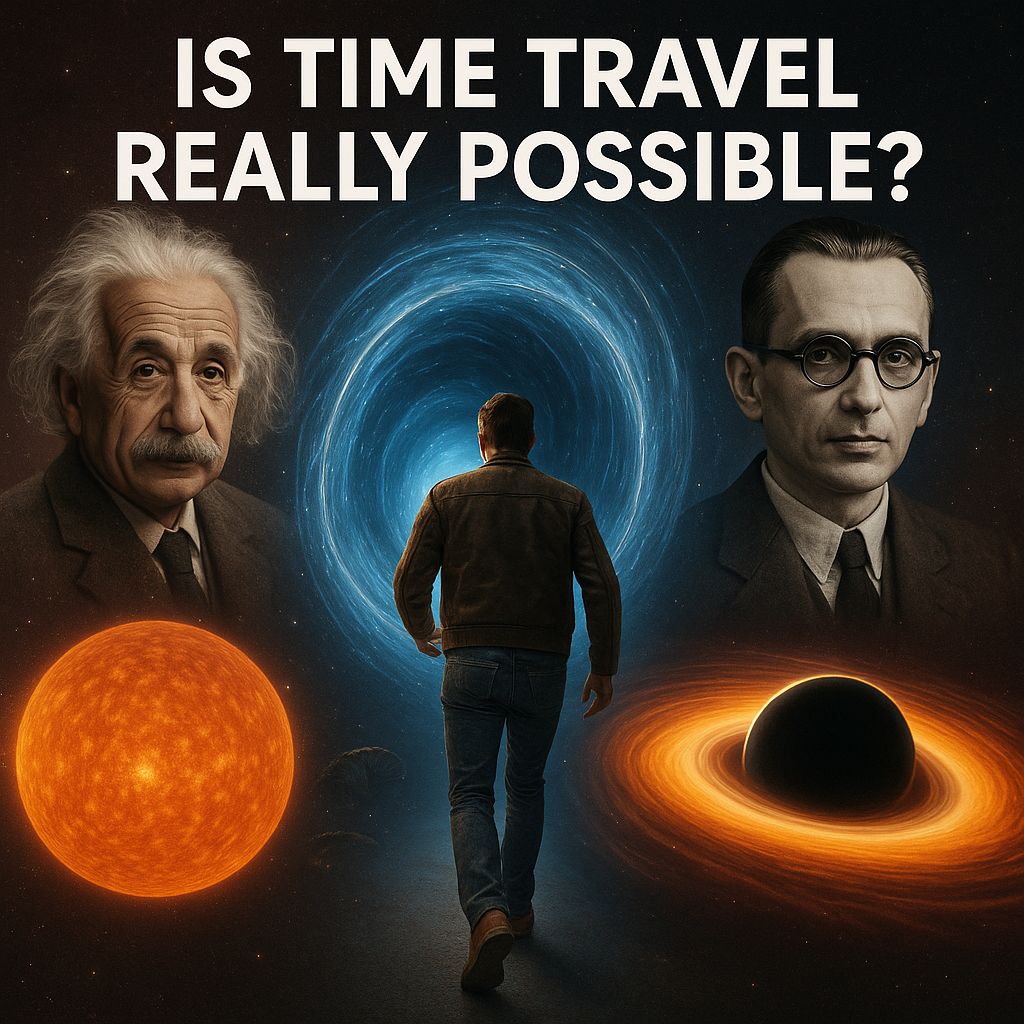Is Time Travel Really Possible?
Time travel has long captured our imagination—fueling science fiction, pop culture, and philosophical debates. But what if it’s not just fantasy? Recent developments in theoretical physics suggest it might be more than a wild idea.
Einstein Changed Everything

Albert Einstein’s Theory Of Relativity Shattered The Old Idea That Time Ticks Uniformly Across The Universe. Instead, Time Is Flexible—It Stretches And Contracts Depending On Gravity And Motion. Massive Objects Like Stars And Black Holes Can Actually Warp Spacetime, Altering How Time Flows Nearby.
Gödel’s Time-Looping Universe
In 1949, Mathematician Kurt Gödel Took Einstein’s Equations And Proposed A Bold Solution: A Rotating Universe That Could Theoretically Loop Time Back On Itself. This Idea Introduced The Possibility Of Closed Timelike Curves, Where You Might Return To A Point In Your Past.
Wormholes & Black Holes: Natural Time Machines?

Later Came Rotating Black Holes And Wormholes—Hypothetical Tunnels Through Spacetime. If Stable And Traversable, They Could Connect Distant Points In Both Space And Time. But There’s A Catch…
The Real Barriers: Energy & Stability
To Hold A Wormhole Open, We’d Need Exotic Matter—A Form Of Negative Energy That’s Unlike Anything We’ve Produced At Scale. Even Then, Quantum Fluctuations Might Destabilize It Before We Could Travel Through. In Other Words, Time Travel Is Technically Allowed By Physics, But It’s Wildly Impractical—For Now.
The Tourist Paradox & Multiverse Workarounds
Stephen Hawking Once Joked That The Lack Of Tourists From The Future Proves Time Travel Doesn’t Exist. But Later, He Softened That Stance, Acknowledging That The Laws Of Physics Don’t Forbid It. One Theory Suggests Changing The Past Might Not Affect Your Timeline At All—It Could Create A Parallel Timeline Instead.
